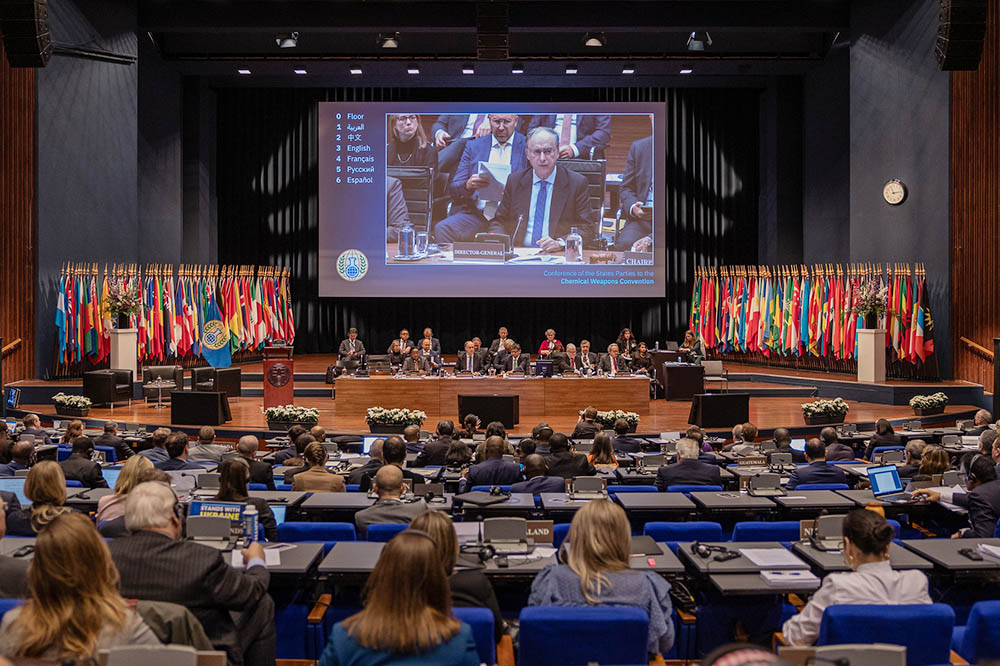The UNIDIR Expert Network on the Governance of Chemical and Biological Weapons brings together a diverse set of subject matter experts from around the world to discuss and collaborate in activities designed to prevent the hostile exploitation of chemical and biological weapons.
The network is linked to UNIDIR’s ongoing research project on strengthening the norm against chemical and biological weapons. It provides a platform to explore new ideas related to security and exchange good practices and new thinking around addressing challenges linked to chemical and biological weapons governance.
The network aims to enhance transparency in dual-use chemical and biological research around the globe and feed into a web of measures designed to prohibit and prevent the development and use of chemical and biological weapons. This aim cannot be achieved by any one entity alone. It requires a collective, multilateral and multi-layered effort involving a range of stakeholders from around the world, from the international to the individual.
The network will take stock of past and present chemical and biological security governance initiatives, including discussions around codes of conduct and education, and build an evidence base to inform the development of future measures, including through insights into lessons learned from these instruments.
